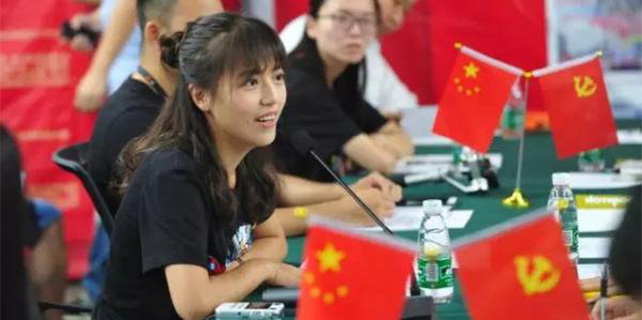Imperial College innovators attracting attention
A team of entrepreneurs from Imperial College London has won the top prize at the 10th China-UK Entrepreneurship Competition with a revolutionary memory device.
LoMaRe founders Andrei Mihai, Jan Zemen, Bin Zou and Evgeniy Donchev created a new type of digital storage and memory technology, known as Piezo Magnetic Random Access Memory. The team described it as high-endurance, high-density and non-volatile.
A total of four teams presented their ideas and business plans to a panel of five judges during the final of the competition, ahead of a question-and-answer session.
Donchev said the idea needed capital and manpower for it to succeed.
"We're a technology that requires a lot of capital to progress and also it requires a lot of manpower," he said."China is the logical place to go if you want to produce something fast, so this was the initial motivation of why we targeted the competition. But, along with our research of the markets, we realize that China is actually a big market, so we don't only want to produce there and sell elsewhere, we want to establish ourselves as innovators in China."
LoMaRe won 6,000 pounds($7,800) in prize money, and the chance to take part in an investment workshop in Chongqing, China and court investors in Ningbo and Shenzhen.
The annual competition aims to encourage new business ventures between China and the United Kingdom and simulate the process of entrepreneurs soliciting start-up funds from early-stage investors and venture capital firms.
Competition co-founder David Brown, a professor at Lancaster University, said the team deserved to be winners."
LoMaRe is genuinely innovative," he said. "It has got intellectual property to support its idea. It's high-risk, but its links to China are huge. This has so much potential importance to China."
And he said he was pleased with the way the competition has grown over the years.
"The competition has strength because it is so clear about what it's trying to do. It's a competition that speaks to a university audience, so these ideas are from within the university ecosystem …They are all early-stage ideas, students at the very frontier of their thinking. It's developmental and also China-UK focused."
The competition is part of the Prime Minister Initiative II Connect project and is supported by the British Council and Confucius Institute.









